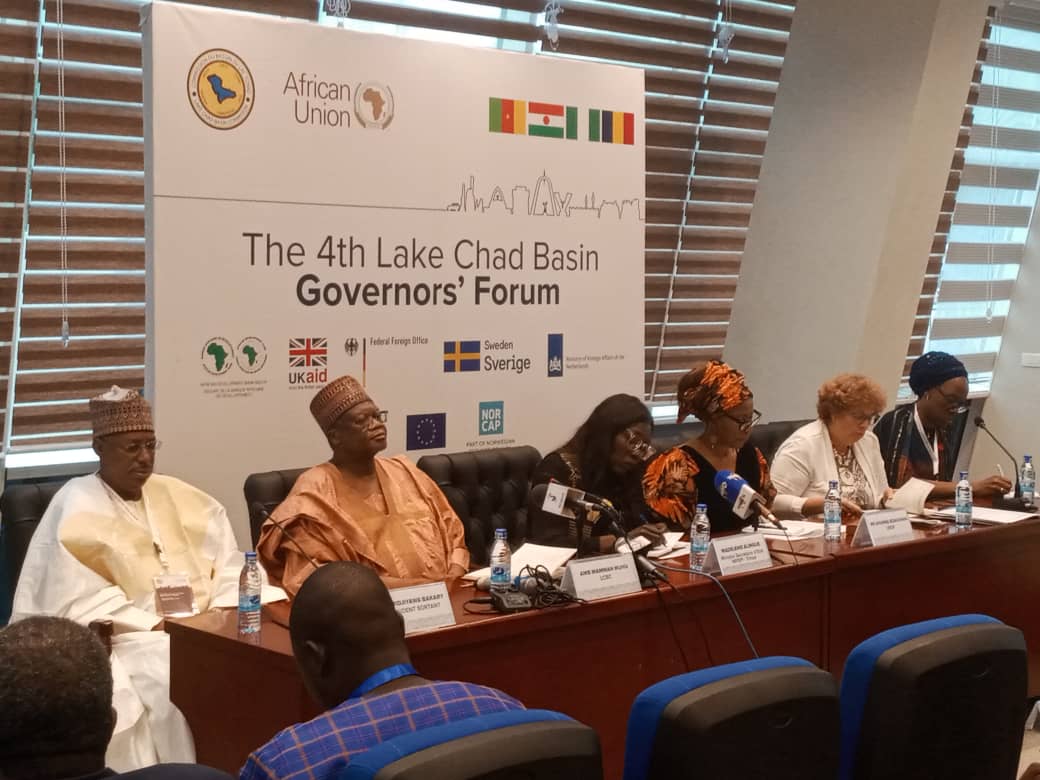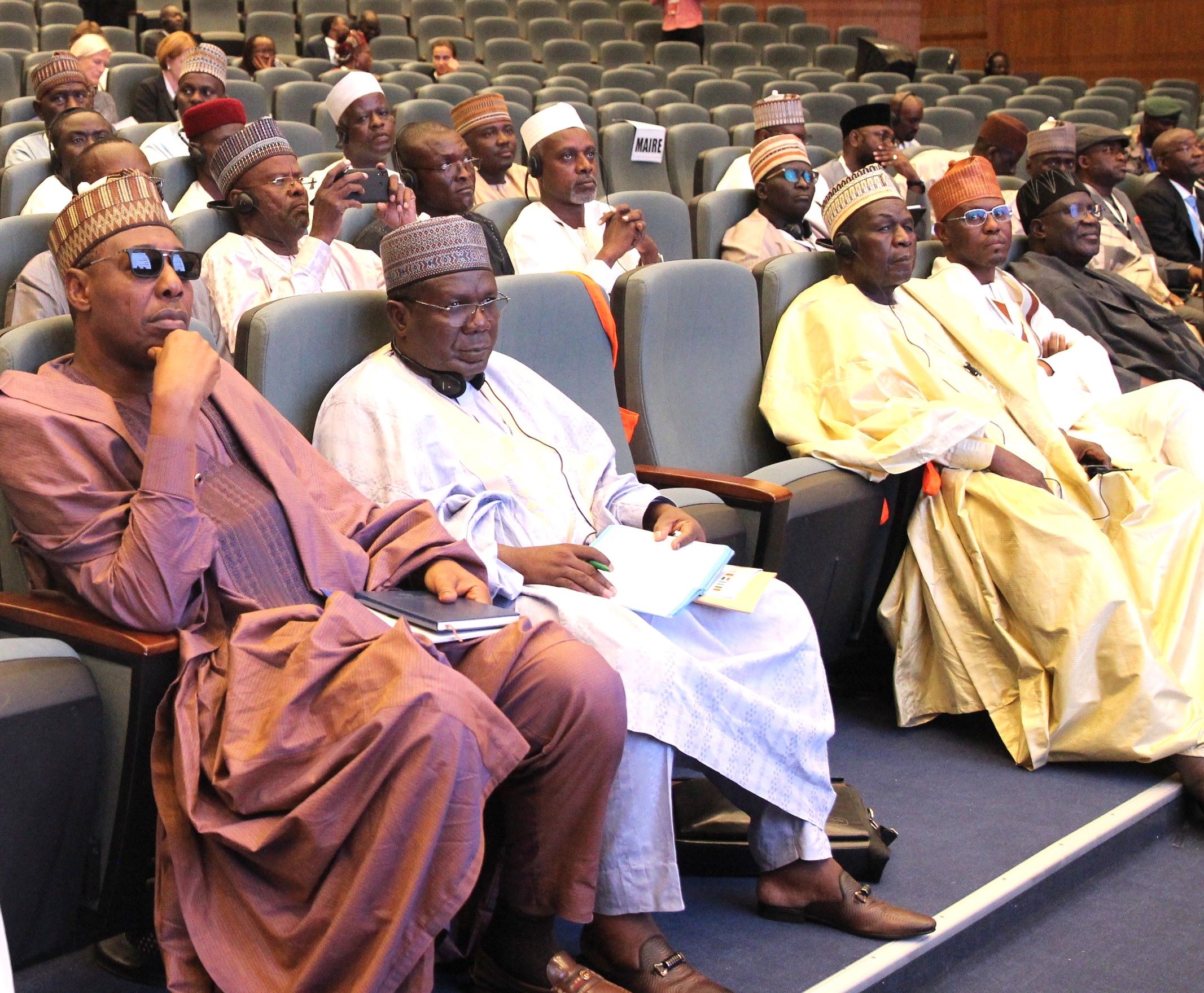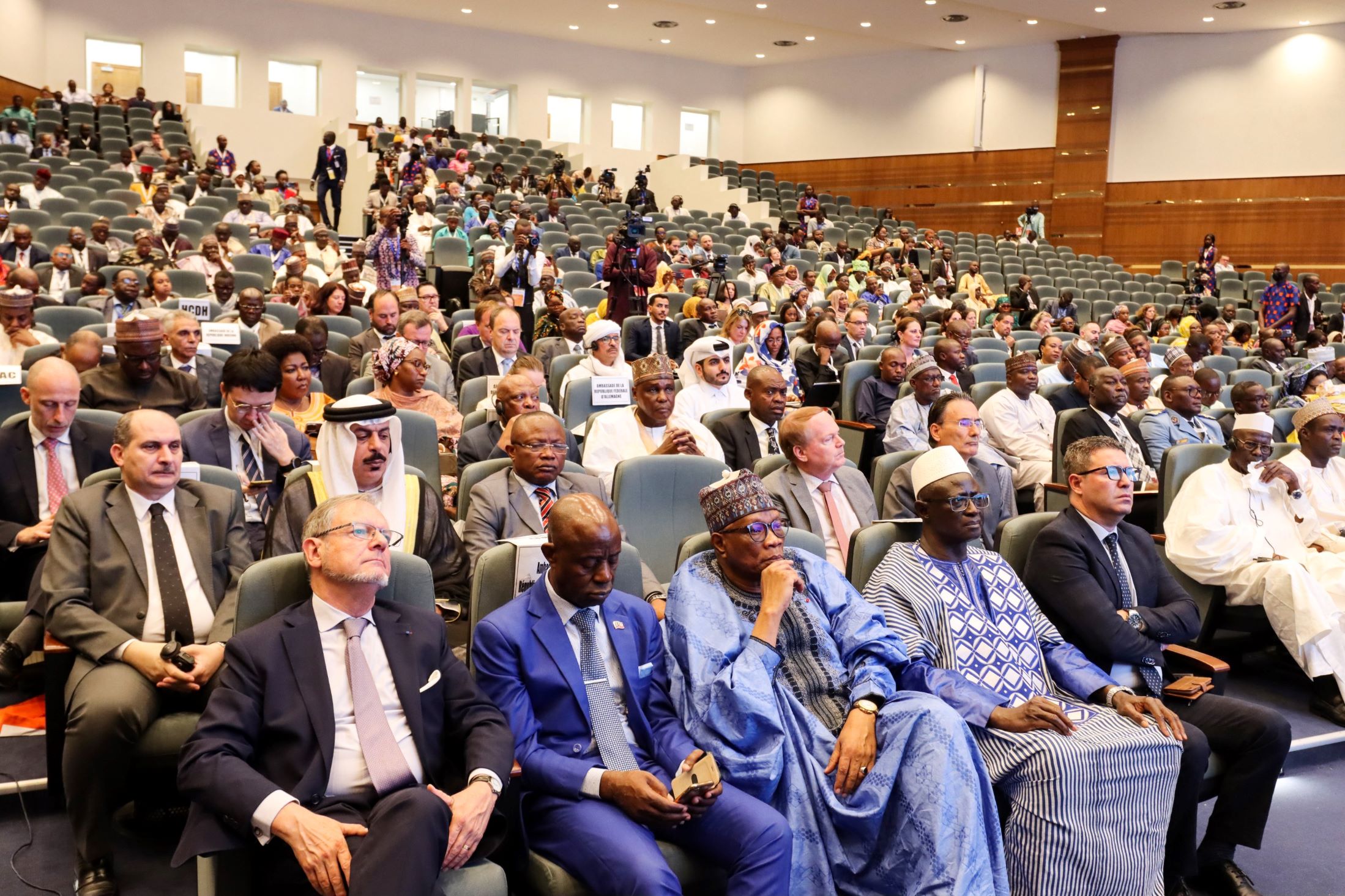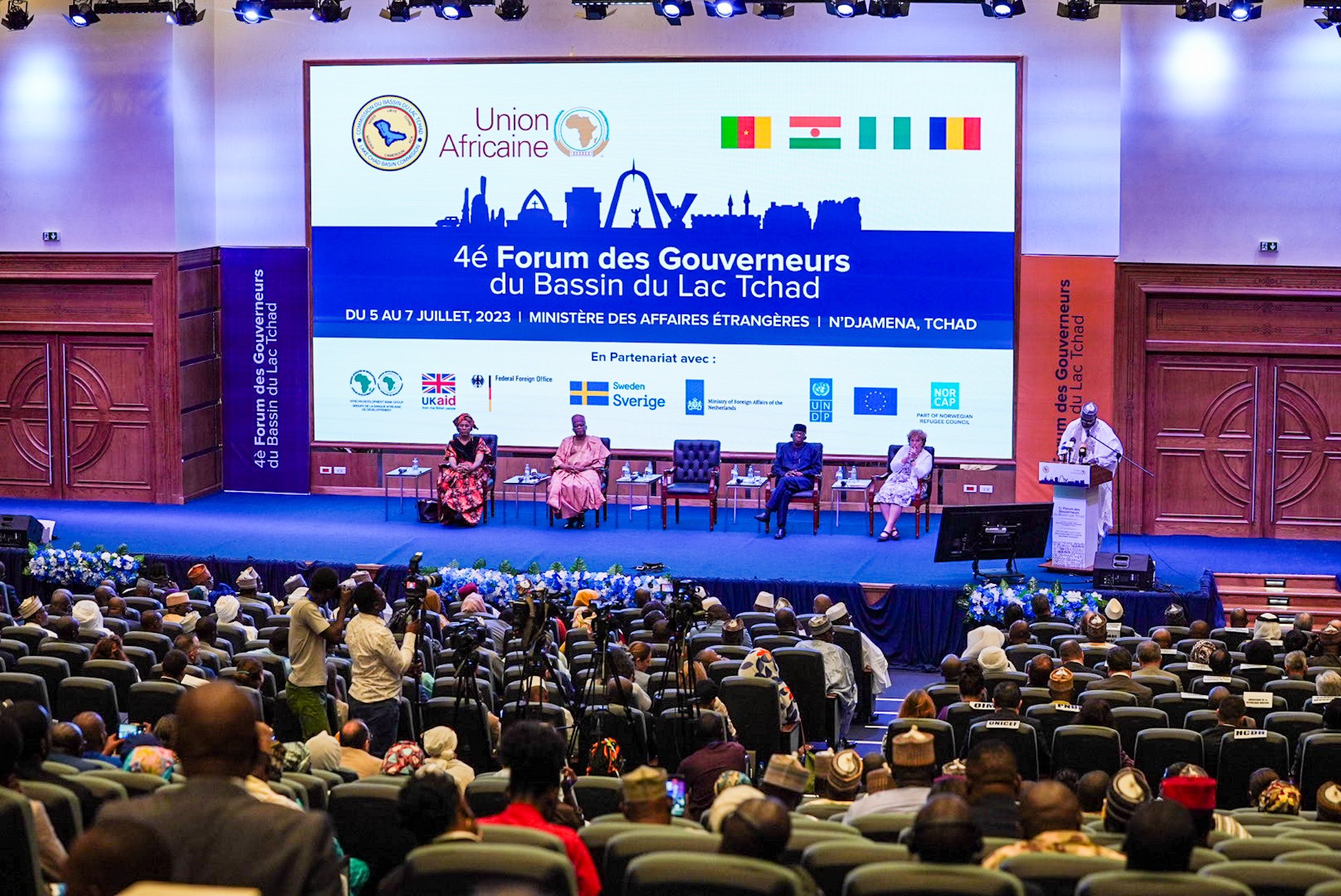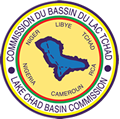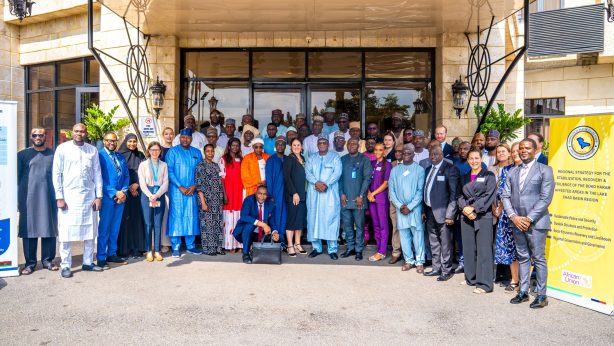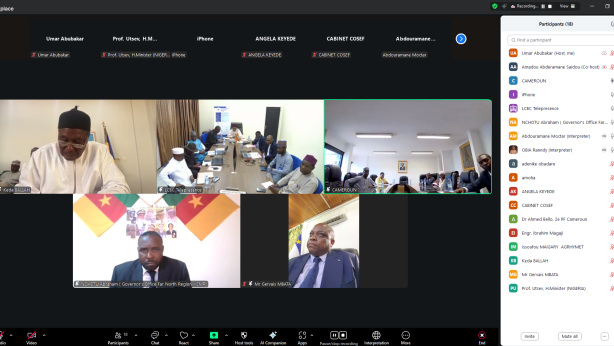End of the 4th Lake Chad Basin Governors’ Forum
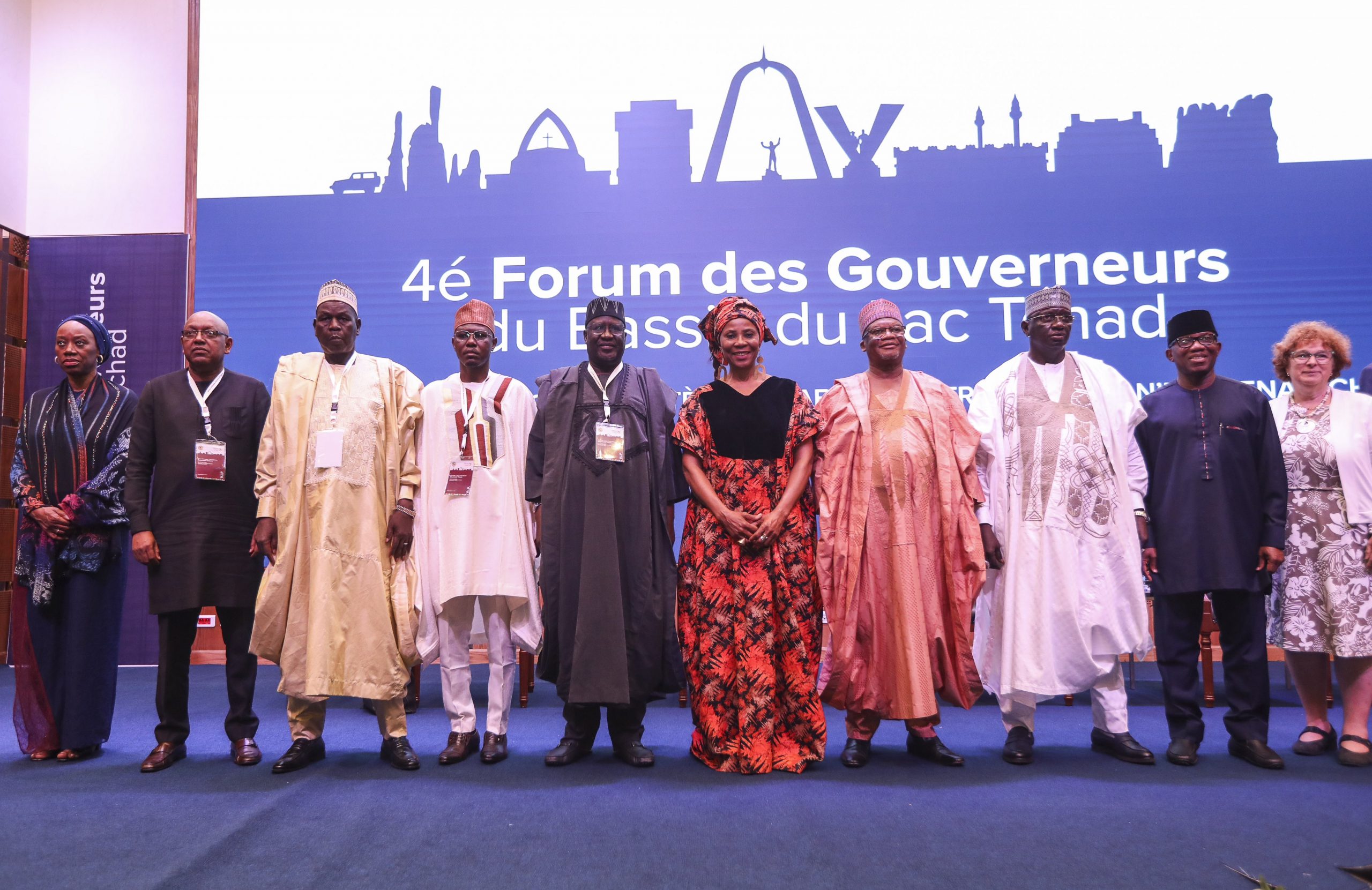
N’Djamena, 8 July 2023 – The curtains of the 4th Lake Chad Basin Governors’ Forum for regional cooperation on stabilisation, peace consolidation and sustainable development were drawn yesterday in the Chadian capital, which was cooled by a gentle rain. On the theme “New opportunities for peace in a SHIFTING security context”, this robust platform for promoting peace and development in the Lake Chad Basin was attended by about 350 participants from the Lake Chad Basin Commission (LCBC), the African Union Commission (AUC), the United Nations Development Programme (UNDP), governors of the eight regions of the Lake Chad Basin affected by the crisis. Also in attendance were the United Nations system, multilateral and bilateral institutions, donors, civil society organisations, traditional and religious leaders, and the media. The Forum served as the basis for exploring the best opportunities for promoting peace and strengthening regional cooperation.

In a context marked by conflict dynamics and emerging challenges, it has led to massive population displacements, damage to the social fabric, disrupted public services and weakened institutional capacities in the countries affected, notably Cameroon, Niger, Nigeria, and Chad.
For these eminent, hand-picked personalities, the main objectives were to refine their understanding of the security dynamics underway in the region and the implications of efforts to complete the restoration of state authority, review the implementation of the Regional Stabilisation Strategy (RSS) over the past five years and propose key strategic priorities for the next phase, identify ways and means of achieving community reintegration and transitional justice in the region, review the role and participation of vigilante groups and government-affiliated non-state security actors in the Lake Chad region. The Forum also aimed to find ways of scaling up and creating partnerships to put in place solutions to the situation of forcibly displaced people (refugees and internally displaced people), provide options for climate security and natural resource management in the Lake Chad basin, review the dynamics of farmer-herder conflicts and their implications for community resilience and sustainable peace in the Lake Chad region, etc.
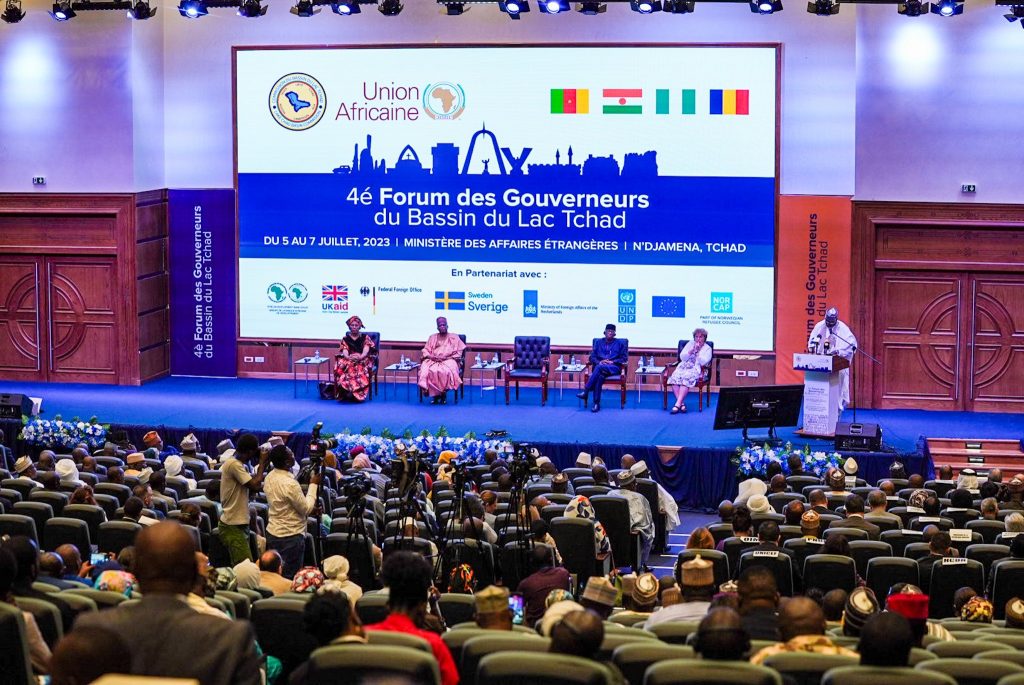
Over the past two decades, the four countries that share Lake Chad (Cameroon, Niger, Nigeria, and Chad) faced multiple challenges and issues resulting from a combination of complex multidimensional factors, including crises and conflicts involving non-state armed groups, extreme levels of poverty, climatic upheaval and, more recently, the Covid-19 pandemic.
According to data from the United Nations, these interconnected factors led to one of the most serious humanitarian crises in recent years, with almost 3 million people displaced, more than 11 million people in need of emergency humanitarian aid, more than half of whom are facing food insecurity, and more than 500,000 children suffering from severe malnutrition.
While the military and security situation are gradually stabilising, thanks in particular to the combined efforts of the Multinational Joint Task Force (MNJTF) of LCBC Member States and the various national armies, nevertheless, economically, and socially, everything remains to be built or rebuilt. 13 years of conflict and violence have resulted in the loss of human lives, massive internal and cross-border displacement of populations, destruction of the social fabric and property, violation of human rights, disruption of public services and weakening of public authorities.
As an essential component of the Regional Strategy for the Stabilisation, Recovery and Resilience of the Areas Affected by the Boko Haram Crisis, the Governors’ Forum provides a unique and privileged framework for dialogue and exchange between various stakeholders (regional governors, the United Nations system, multilateral agencies, civil society, etc. ) on the need for a comprehensive, multi-sectoral and coordinated set of local, national and regional initiatives to achieve long-term stabilisation, recovery and resilience, i.e. a future where security is restored, communities are rebuilt. Opportunities abound in the Lake Chad Basin region.
In this respect, the N’Djamena Forum was no exception. For three days, panellists, comprised of governors, civil society stakeholders, researchers, academics, humanitarians, and development partners, discussed at length the ways and means of better consolidating the gains made, regional cooperation and creating new opportunities for multi-stakeholder commitments to meet the security and climate challenges in the Lake Chad Basin.
Discussions focused on seven main themes, namely:
- Security Trends and Dynamics in the Lake Chad Region,
- The Future of Stabilisation, Recovery, and Resilience: Sustaining and Scaling Impact – Laying the Foundations for Peace and Development,
- Community Reintegration and Transitional Justice,
- Scaling Up and Partnering for Solutions to the Situation of Forcibly Displaced (Refugees and IDPs) in the Lake Chad Basin,
- Vigilante Groups and Government-Affiliated Security Actors in the Lake Chad Basin,
- Beyond Adaptation: Building Local and Regional Capacity to Tomorrow’s Climate Security Challenges in the Lake Chad Basin,
- Agropastoralism, Farmer-Herder Dynamics, and Community Resilience in the Lake Chad Borderlands.
The fourth Governors’ Forum takes place when the first phase of the RSS is ending and also provides a unique opportunity for the various stakeholders to take stock and make the necessary recommendations in implementing the second phase. Therefore, while commending various stakeholders for the good and significant progress made in the implementation of the RSS, including in improving security and basic services in the region, the Lake Chad Basin Governors’ Forum agreed to work harder than in the past – with the support of partners – in intensifying and strengthening joint efforts to stabilise, consolidate peace and foster sustainable development in the Lake Chad Basin region. They include improving livelihoods, providing infrastructure, enhancing security, restoring State authority, strengthening transboundary cooperation, etc.
As such, all partners were urged to maintain their commitments and activities to achieve the above objectives, giving greater priority to socio-economic development as the main means of putting an end to insecurity and dealing sustainably with the crisis throughout the region before inviting the African Union and the other actors concerned to continue and intensify their support for the MNJTF to enable it to continue and improve its efforts to provide better the security necessary for more effective implementation of the RSS. Finally, local, national and regional authorities were urged to redouble their efforts to find solutions to the daunting situation facing refugees and displaced persons in the LCB region by continuing to reflect together on the role of vigilante groups and other government-affiliated security actors in the region while adhering to international human rights standards and creating avenues for the reintegration of their members into civilian life as stabilisation efforts continue. They include the search for innovative mechanisms for sustainable financing, broadening the partnership base to include the private sector, meet the increased ambitions for stability in the LCB region.
The fifth Lake Chad Basin Governors’ Forum for Regional Cooperation on Stabilisation, Peacebuilding and Sustainable Development will be held next year in Yobe State, Nigeria, on a date to be announced.
